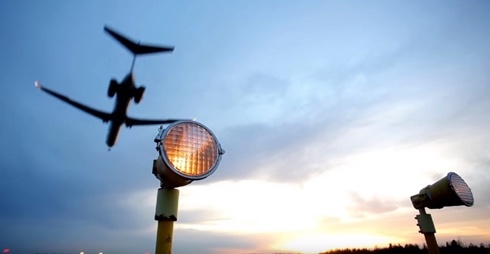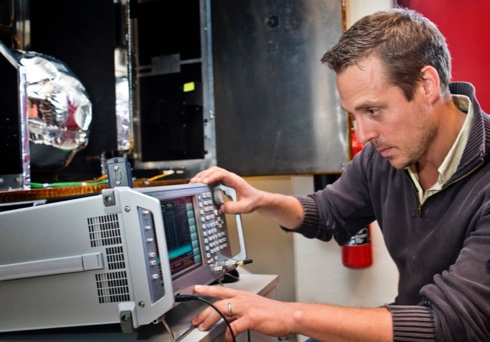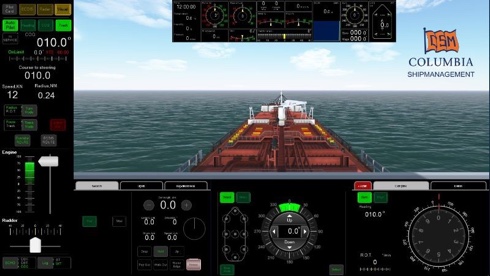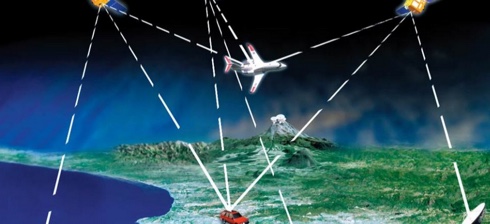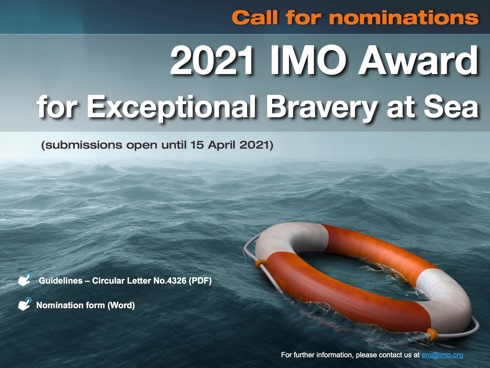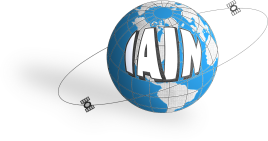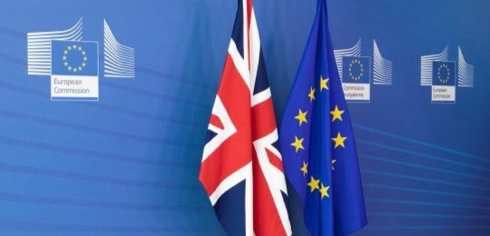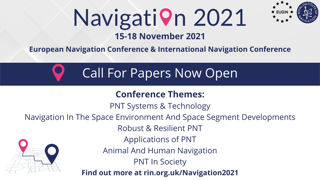GNSS Software Defined Radio metadata standard published

From its HQ in Manassas, Virginia, on 17 March the US ION announced that the GNSS Software Defined Radio Metadata Standard document has been published in NAVIGATION: Journal of the Institute of Navigation’s Spring 2021 issue, Volume 68, No. 1, pp. 11-20. The Global Navigation Satellite Systems Software Defined Radio Sample Data Metadata Standard is the product of a three-year long effort and defines parameters and schema to express the contents of SDR sample data files. The standard promotes the interoperability of GNSS SDR data collection systems and processors.
In the past several years there has been a proliferation of software?defined radio (SDR) data collection systems and processing platforms designed for or applicable to satellite navigation (satnav) applications. These systems necessarily produce datasets in a wide range of different formats. To correctly interpret this SDR data, essential information such as the packed sample format and sampling rate is needed.
Communicating this metadata between creators and users has historically been an ad?hoc, cumbersome, and error?prone process. To address this issue, the satnav SDR community developed a metadata standard and normative software
library to automate this process, thus simplifying the exchange of datasets and promoting the interoperability of satnav SDR systems. The standard was ratified and formally accepted as an Institute of Navigation Standard in January 2020.
UK Consultation into Polar Code begins
Consultation on putting international rules designed to protect the polar regions and those that sail on them into UK law was put in train on 16 March.
The rules cover safety-related requirements for some of the toughest environments on earth including ship design, construction, and equipment as well as the protection of the unique eco-systems of the polar regions. Known as the Polar Code, it is the international standard for shipping in those regions, has been developed by IMO with substantial input from the UK.
Operators should already be working to it, but the UK wants to have it in law here as part of its ongoing commitment to cleaner seas and protection of the environment.
James Hartley-Binns, Ship Standards Policy Lead with the Maritime and Coastguard Agency commented: ‘The Polar Code is designed to protect some of the most fragile ecological places on earth as well as protecting seafarers and passengers in harsh environments.’
Galileo will help Lunar Pathfinder navigate around Moon
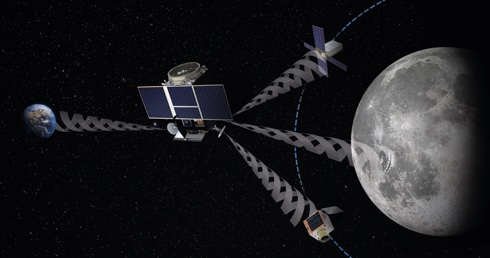
ESA’s Lunar Pathfinder mission to the Moon will carry an advanced satellite navigation receiver, in order to perform the first ever satnav positioning fix in lunar orbit. This experimental payload marks a preliminary step in an ambitious ESA plan to expand reliable satnav coverage – as well as communication links – to explorers around and ultimately on the Moon during this decade.
Ten years of safer skies with EGNOS
With 26 satellites in orbit and more than two billion receivers in use, Europe’s Galileo satellite navigation system has made a massive impact. But our continent has another satnav system that has been providing safety-of-life services for ten years now – chances are that you’ve benefited from it without noticing.
Its name is EGNOS, the European Geostationary Navigation Overlay Service. Transmitting signals from a duo of satellite transponders in geostationary orbit, EGNOS gives additional precision to US GPS signals – delivering an average precision of 1.5 metres over European territory, a tenfold improvement over un-augmented signals in the worst-case – and also confirmation of their ‘integrity’ – or reliability – through additional messaging identifying any residual errors.
While its Open Service has been in general operation since 2009, EGNOS began its EU-guaranteed safety-of-life service in March 2011.
ION Joint Navigation Conference 2021 registration

On 10 March from its HQ in Manassas, Virginia, the (US) Institute of Navigation (ION) announced that registration for the Joint Navigation Conference (JNC) was open.
The JNC, sponsored by the Military Division of the Institute of Navigation, will be held from 24 to 26 August (FEDCON US ONLY) at the Northern Kentucky Convention Center in Covington, Kentucky (Greater Cincinnati, Ohio); and the Classified Sessions (Secret US ONLY) will be held on 27 August, at The Air Force Institute of Technology on Wright-Patterson AFB, Ohio.
First-ever authenticated positioning fix
In a first for any satellite navigation system, Galileo has achieved a positioning fix based on open-service navigation signals carrying authenticated data. Intended as a way to combat malicious ‘spoofing’ of satnav signals, this authentication testing began at ESA’s Navigation Laboratory – the same site where the very first Galileo positioning fix took place back in 2013.
ION webinar on Mars Rover navigation from Earth to Jezero Crater
It was announced from Manassas Virginia, on 2 March that The Institute of Navigation will host the Navigation of the Mars 2020 Perseverance Rover from Earth to Jezero Crater webinar on 23 March at 1:30 p.m. EDT. The webinar will be presented by Gerhard Kruizinga, Navigation Engineer, Mars 2020 Navigation Team Chief, NASA’s Jet Propulsion Laboratory and moderated by Dr. Frank van Diggelen, ION President.
‘We are honored to have the Navigation Team Chief of this historic mission, Gerhard Kruizinga, present his first-hand account of getting NASA’s Mars 2020 Perseverance Rover from the launch pad to a safe landing on Mars’ said Dr. van Diggelen, ION President.
IHMA announces new Regional Committee for Africa

The International Harbour Masters’ Association (IHMA) is proud to endorse the establishment of its African Harbour Masters’ Committee, the second such committee to be created under the Association’s Constitution which allows a region of IHMA to be formed in an area of the world, the boundary of which is defined by named countries. IHMA’s Executive Committee unanimously supported the proposal which was formally approved on 25 January, 2021.
The AHMC will bring together the African continent and collaborate in a spirit of co-operation to share ideas and provide guidance, support, and direction in the management of all aspects of maritime matters related to the Harbour Master’s function in ports.
IAAC annual workshop of graduate students in Systems & Control
From Moshe Idan (IAAC President): ‘Continuing the tradition of previous years, we are happy to announce that the Annual Workshop of Graduate Students in Systems & Control – GSC 2021 will take place on 3 May, 2021. This year the workshop will be organized by Prof. Rafi Linker from the Faculty of Civil and Environmental Engineering at the Technion.
At this time it is too early to determine if the event will be held on-line, at the Technion, or in some hybrid form, but, as always, it will provide a platform for exchanging ideas among students and researchers from various universities and institutions in Israel.’
Good coordination onshore needed to deter and resolve attacks on ships
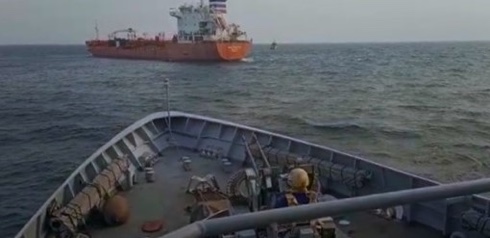
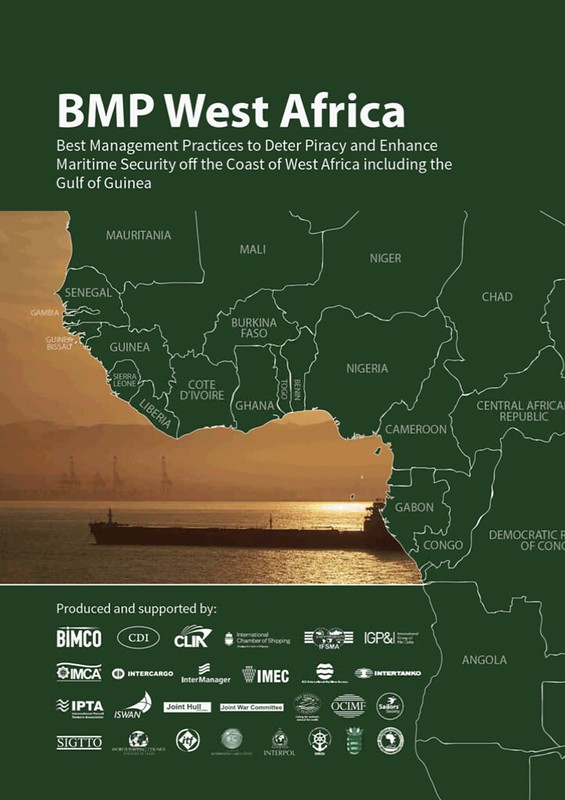
IMO Secretary-General Kitack Lim has expressed deep concern about the escalation in the number and severity of attacks on ships and crew in the Gulf of Guinea region. He insisted on the need for all stakeholders to work together to restore security and reduce the threats to the safety and security of crews and vessels operating in the region. This was reported by IMO on 15 February.
The urgency of the situation has been underlined by the attack on the container ship Mozart on 23 January 2021, which resulted in a fatality and the kidnapping of 15 seafarers.
In a circular letter (No. 4382, issued 10 February1), the Secretary-General said that IMO has been taking action to enhance the coordination of initiatives among stakeholders, including facilitating meetings with representatives of the industry, the Nigeria Maritime Administration and Safety Agency (NIMASA) and the Interregional Coordination Centre for the Implementation of Regional Strategy for Maritime Safety and Security in Central and West Africa (ICC).
The Secretary-General also highlighted that ships need to implement the IMO endorsed Best Management Practices (BMP) for West Africa (WA) to avoid, deter, delay and report attacks. The BMP cover risk assessment, ship protection measures and reporting.
The Guidance on piracy section of IMO’s maritime security webpage can be found here.
CSM signs cloud-based ship simulator partnership with Wärtsilä Voyage
At the end of January Columbia Shipmanagement (CSM) reported that it had entered partnership with Wärtsilä Voyage to launch cloud-based simulator training for its maritime training centres worldwide (including in Russia, Latvia, Ukraine, Georgia, Republic of Korea, Croatia and the Philippines).
It is understood that the agreement with Wärtsilä’s distributor in Manila, AWA Marine, will enable cloud-based simulators to be used for navigation, engineering, and liquid cargo-handling simulator-based training.
Columbia Shipmanagement is one of the world’s leading ship management companies, with over 40 years of experience in the industry. It currently employs over 15,000 people worldwide and manages 380 vessels.
Complementary PNT and GPS backup technologies demonstration
On 15 January the US Department of Transportation (USDOT) released the report to Congress entitled: Complementary Positioning, Navigation, and Timing (PNT) and GPS Backup Technologies Demonstration1.
USDOT’s Volpe National Transportation Systems Center (Volpe Center) conducted field demonstrations of candidate PNT technologies that could offer complementary service in the event of Global Positioning System (GPS) disruptions. The purpose of the demonstrations was to gather information on PNT technologies at a high Technology Readiness Level that can work in the absence of GPS.
ION Executive Committee, Council and Standing Committee Chairs
From Manassas, Virginia, on 1 February the (US) Institute of Navigation (ION) announced its Executive Committee, Council and Standing Committee Chairs following the ION International Technical Meeting (ITM) and Precise Time Transfer and Time Interval meetings (PTTI) 2021 VIRTUAL held from 25-28 January.
The ION Executive Committee, Council and Standing Committee Chairs will serve a two-year term.
Nominations are invited for the 2021 IMO Award for Exceptional Bravery at Sea
Readers will find here a promotional flyer in the three working languages of the Organization (English, French and Spanish).
Each of them contains two links: one for the guidelines (Circular Letter No.4326) and the other for the nomination form in Word format.
It will be recalled that the Award Guidelines were amended in 2018 and nominations may now also involve displays of extraordinary seamanship skills in very difficult conditions or any other acts of outstanding courage occurring at sea.
Satnav antenna built for ends of the Earth
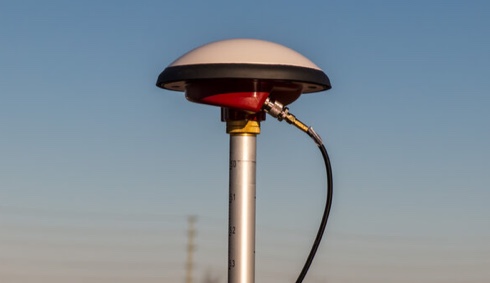
A new ESA-supported wide-bandwidth satnav antenna has been designed to receive both satellite and augmentation signals from anywhere in the sky, even down to just a couple of degrees above the horizon.
With a growing number of satnav constellations in operation, Canada-based Tallysman Wireless’s new VeroStar antenna aims to pick up all available signals, as well as support the availability of L-band correction service signals. Its development was supported through ESA’s Navigation Innovation and Support Program (NAVISP) programme.
Thome Group launches new Navigation Bridge Simulator
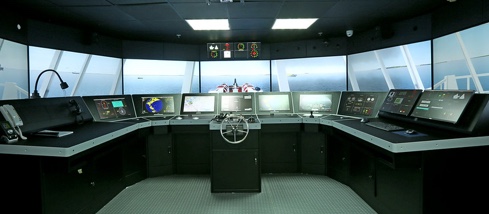
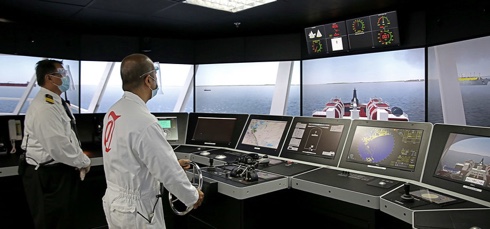
The Thome Group recognises the importance of its seafarers keeping pace with the rapidly changing technology on board today’s modern vessels which is why it has recently invested in the installation of a new Full Mission Navigation Bridge Simulator with a 320° view.
Using Kongsberg Digital’s latest K-Sim navigation simulator, trainees will be able to use equipment that looks, feels and has the same functions as real on board equipment, while operating in a safe training room environment.
The sophisticated new visual system brings to life geographic locations, different weather conditions and other nearby vessels so trainees can have better seascape and interact with multiple scenarios.
Autonomous driving on intelligent road at Europe’s edge

An ESA-supported effort put an intelligent road up in Finnish Lapland through its paces, assessing its suitability for testing autonomous vehicles in some of Europe’s most challenging driving conditions.
‘If autonomous vehicles can drive well here, they can drive almost anywhere.’ says Sarang Thombre of the Finnish Geospatial Research Institute, managing the Arctic-PNT project. ‘Our project aimed at ensuring in particular that the precise positioning required by autonomous systems was available here, to establish this test site is indeed somewhere that driverless vehicle manufacturers should employ for testing. We carried out experiments with a robotic car over two successive seasons to show that the necessary precise positioning, down to 20 cm, is indeed accessible.’
ICAO reports 2020 passenger totals drop 60%

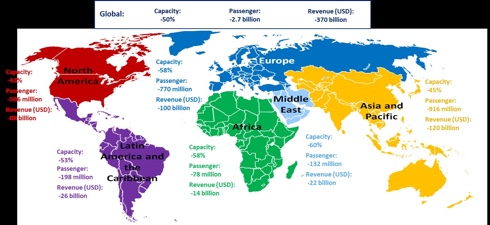
With its latest economic impact analysis of COVID-19 now completed, the UN agency for civil aviation has confirmed that international passenger traffic suffered a dramatic 60% drop over 2020, bringing air travel totals back to 2003 levels. This was announced from ICAO HQ in Montréal on 15 January 2021.
ICAO reports that as seat capacity fell by 50% last year, passenger totals dropped by 60% with just 1.8 billion passengers taking to the air during the first year of the pandemic, compared to 4.5 billion in 2019.
Its numbers also point to airline financial losses of $370 billion resulting from the COVID-19 impacts, with airports and air navigation services providers (ANSPs) losing a further $115 billion and $13 billion, respectively.
The latest IALA publications
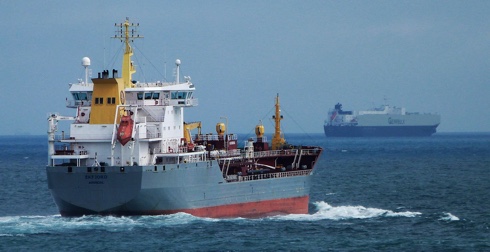
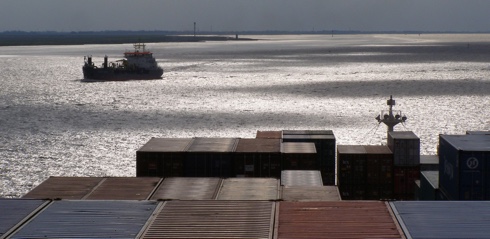
IALA is a non-profit, international technical association. Established in 1957, it gathers together Marine Aids to Navigation authorities, manufacturers, consultants, and scientific and training institutes from all parts of the world and offers them the opportunity to exchange and compare their experiences and achievements.
IALA encourages its members to work together in a common effort to harmonise Marine Aids to Navigation worldwide and to ensure that the movements of vessels are safe, expeditious and cost-effective while protecting the environment.
Taking into account the needs of mariners, developments in technology and the requirements and constraints of aids to navigation authorities, a number of technical committees have been established bringing together experts from around the world.
See IALA’s guidelines and recommendations.
A New Year message from the President
There is no doubt that 2020 was a difficult year for so many around the world.
Many IAIN Member organisations had to postpone meetings, some to dates beyond the year’s end and well into 2021 or even beyond. Within IAIN, Officers took the difficult decision to postpone our own IAIN 2021 World Congress. The possibility to hold Congress in 2022 will be reviewed at the next Officers’ meeting in May 2021. All the international and intergovernmental organisations with which IAIN is involved have also had their own programmes and plans impacted.
However, 2020 has also seen great innovation: humankind at its best, collaborating and working together to achieve things previously thought impossible. From global collaboration on vaccine development to local communities providing support for the needy in their streets, great things have been achieved by so many. Institutes of Navigation have played their part too, often with more people able to contribute virtually than would be possible in-person. Positioning, navigation and timing has, at last, become widely recognised as the invisible utility underpinning and enabling our modern world. I believe we should all feel proud of how our knowledge and co-operation have enabled so much innovation and are contributing to safety and sustainability.
On behalf of myself, Simon Gaskin, our Secretary General, and the IAIN Officers, may we take this opportunity to wish you and your families all the best for a successful and rewarding 2021.
Best wishes,
John Pottle, President IAIN.
Electronic Navigation Systems booklet
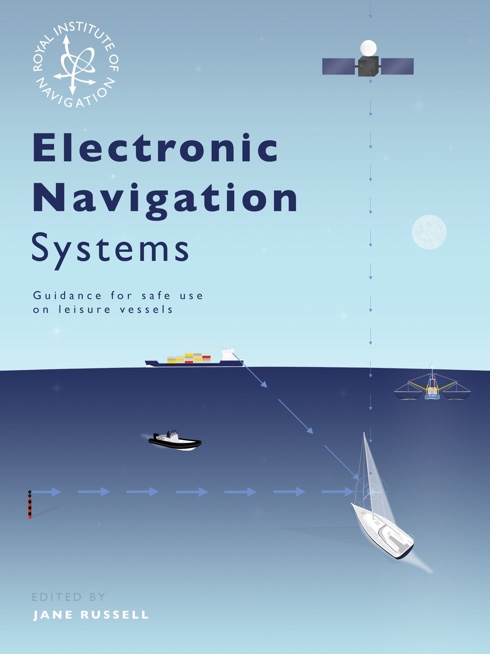
The objective of this booklet is to provide guidance on the safe use of electronic navigation and associated systems on leisure vessels. Navigating a leisure vessel has always required the skipper/navigator to use all available information and that has never been more important than now, with the availability of ever increasing sources of information. Good navigational safety is still dependent on the continuous assessment by the skipper/navigator of all the navigation-related information available on the vessel – and not just over-concentrating on some, however beguiling they may be.
EU-BREXIT trade accord, nearly there
Of the accord President of the European Commission, Ursula von der Leyen said: “It was worth fighting for this deal because we now have a fair and balanced agreement with the UK, which will protect our European interests, ensure fair competition, and provide much needed predictability for our fishing communities. Finally, we can leave Brexit behind us and look to the future. Europe is now moving on.”
The European Commission’s Chief Negotiator, Michel Barnier, said: “We have now come to the end of a very intensive four-year period, particularly over the past nine months, during which we negotiated the UK’s orderly withdrawal from the EU and a brand new partnership, which we have finally agreed today. The protection of our interests has been front and centre throughout these negotiations and I am pleased that we have managed to do so. It is now for the European Parliament and the Council to have their say on this agreement.”
You may want to read this or this to get a better picture of the accord.
Navigation 2021 Call for Papers
The Navigation 2021 organisers are inviting papers in the following categories:
– Peer-reviewed: Your abstract and, if accepted, paper will be peer reviewed and published to be indexed and searchable. Your presentation will be invited in a parallel technical session at the conference.
– Presentation: Your abstract will be reviewed and, if accepted, you will be invited to present your work in a parallel session at the conference.
– Poster: Your abstract will be reviewed and, if accepted, your poster will be displayed in the virtual exhibition hall. We plan to encourage delegate interaction through poster presentations during the networking sessions.
The best peer-reviewed papers will be invited to submit for consideration to be published in the Journal of Navigation.
ION combined ITM/PTTI early bird deadline
The early bird registration discount deadline is approaching. Save $50 on registration rates for The ION International Technical Meeting (ITM) and Precise Time and Time Interval (PTTI) 2021 virtual meetings, being held January 25-28, 2021 in Pacific Standard Time (PST). Complete your registration by Monday, January 4.
The two are combined into one virtual meeting to be held January 25-28, 2021.
ION GNSS+ call for abstracts
The ION GNSS+ 2021 Abstract Deadline is March 5, 2021.
Submit your abstract today for the Institute of Navigation’s (ION) GNSS+ 2021: GNSS + Other Sensors in Today’s Marketplace, the 34th International Technical Meeting of the Satellite Division. ION GNSS+ 2021 will take place September 20-24, (Tutorials September 21) at the St. Louis Union Station Hotel in St. Louis, Missouri. A virtual option is available.


